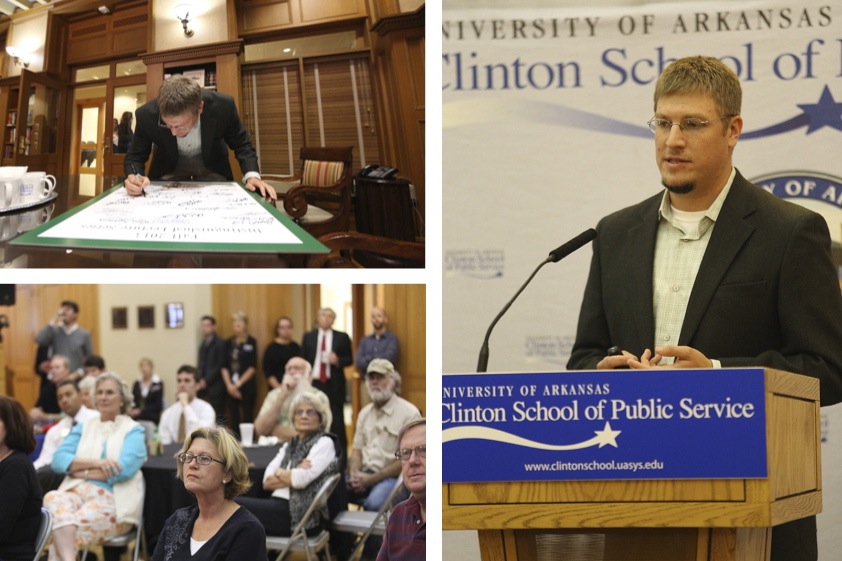
FAYETTEVILLE, Ark. — J.D. Willson, assistant professor of
biological sciences at the University of Arkansas, gave a presentation last
month as part of the Clinton School of Public Service Speaker Series. His talk,
“The Problem of Invasive Pythons in the United States” drew a group of
inquisitive participants to Sturgis Hall in Little Rock.
“This is a topic that’s always fun to talk about because it’s
meaningful to a whole variety of audiences,” Willson said.
In Willson’s speech, he said that estimating population size
and density of snakes is one of the major difficulties facing researchers in
this area. Scientists are refining their ways of catching and estimating the
population of Burmese pythons in the Everglades, but these cryptic animals are
adept at staying hidden.
“These snakes are very secretive,” he said. “Even if you
know how and where to look for them, they can be tricky to find.”
Willson’s research focuses on the ecology, impacts and
potential for range expansion of invasive Burmese pythons in the Florida
Everglades. The fast-growing population of snakes was first recognized as
established about 13 years ago, but Willson’s research suggests that they have
been around much longer than that.
The idea that they were released as a result of Hurricane Andrew
in 1992, which has been widely circulated by the media, does not match the
timeline and spatial pattern of python captures in the Everglades. Their native
habitat in Asia is a climate match for much of the southeastern United States,
including parts of Arkansas.
“We tend to think of pythons as being a tropical animals,
but they are actually found in a wide range of habitats from tropical jungles,
to dry regions of India and Pakistan and temperate climates in China and Nepal,”
Willson said. “Some studies estimate that a quarter to a third of the U.S. may
be viable for pythons.”
Willson’s fieldwork has produced many presentations and
papers, including one titled “Severe mammal declines coincide with python
proliferation in Everglades National Park,” which appeared in the journal Proceedings of the National Academy of
Sciences in 2012. This study provided compelling evidence that pythons
have wiped out mammals in some parts of the Everglades.
A herpetologist and conservation biologist, Willson is
completing basic and applied research on amphibians, aquatic reptiles and
invasive snakes. His dissertation research examined aquatic snake population
dynamics and evaluated the critical roles that snakes play as predators within
wetland ecosystems. He joined the university’s department of biological
sciences in the fall of 2012.
Other speakers featured in the 2013 Clinton School Speakers
Series include former President Bill Clinton, former astronaut Buzz Aldrin,
Col. Ann Wright, Dr. Sanjay Gupta and Ben and Jerry’s co-founder Ben Cohen.
Topics
Contacts
J.D. Willson, assistant professor
Department of Biological Sciences
479-575-2647,